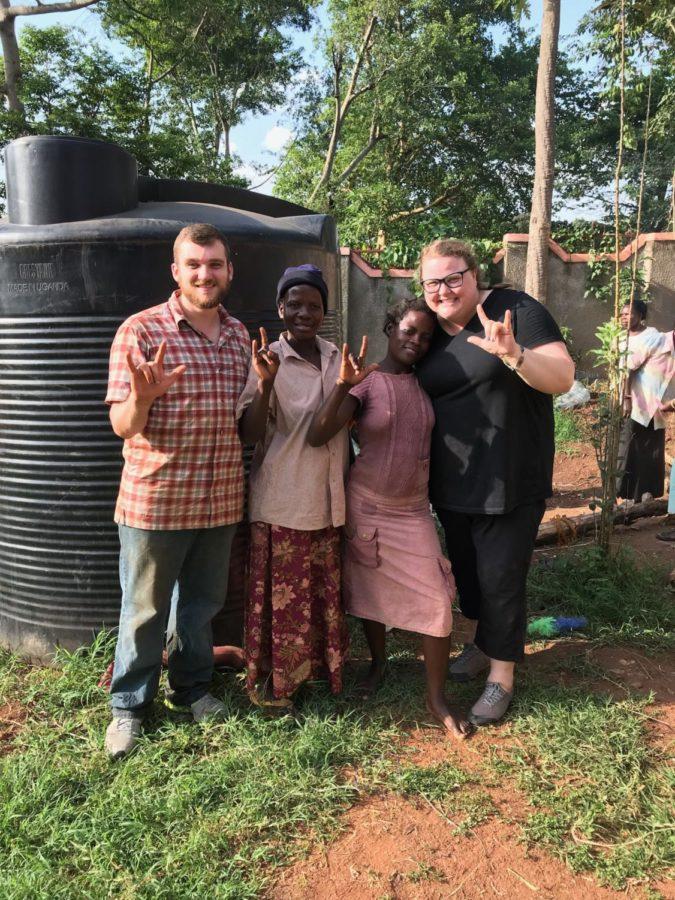CALS students reflect on spring break in Uganda
April 4, 2018
Spring break is a time when students go on vacation with their families, relax on the beach or head home for the week. But for nine Iowa State students, their spring break brought them to Uganda.
The College of Agriculture and Life Sciences has a long history of helping out in the Kamuli District. Their service learning programs are usually held over the summer, and this is only the second time the program has gone over spring break.
Going over break allowed the small group to witness the grand opening of the new training facility. The addition is a lot larger so it can hold more students and workers. It is also built to be sustainable as possible by utilizing solar power and natural ventilation.
“It tells the community in the Kamuli District that Iowa State University is there to stay,” Kody Olson, senior in global resource systems said. “It cemented our long-standing commitment to the program.”
Olson also said that it was evident the amount of thoughtfulness that went into the design for the new facility. On some of the sidewalks, there are trees right in the middle of them because they didn’t want to cut them down.
Olson was a part of the summer program two years ago. Going back this year, he was able to see the progress in the development of the district.
“At night, I see more lights turned on than I did two years ago,” Olson said. “I see more solar panels around, kids studying at night, and there’s new homes being built.”
Olson also got to see some familiar faces. Two years ago, Olson met a mother in the program who was deaf. Being Deaf himself, he was able to talk with her and her family.
For extra money, the women in Uganda make handmade bowls and bags. Olson bought one of the bowls that she, along with a second deaf mother, made and brought it back to remember his experiences.
“In Uganda, people with disabilities don’t get opportunities. So when you get programs like Iowa State reaching out to the most marginalized populations I think that makes a really big impact,” Olson said.
There were also students who were going abroad for the first time. For Shayla Holland, sophomore in Animal Science, this was her first trip outside of the country.
“It opened my eyes to cultural diversity and really getting out of my comfort zone and forcing myself to become immersed in a whole new country, a whole new culture, and a whole new environment,” Holland said.
In the Kamuli District, they helped plant and labor in fields as well as interact with Ugandan students.
“It is a very fulfilling feeling to look back at the field that you just planted and think one of those sweet potato mounds is going to feed so many people,” Holland said.
Helping in the fields saved a lot of time for the mothers in the program. Women are usually the workers on the farms, and the students were able to give them a hand with their work so they could have a bit more time for other things.
“[The program] is very serving toward women in Uganda, because there is discrimination there, and something we reflected on when we came back was the gender imbalance,” Olson said.
At the center, there are opportunities for students in a variety of majors. Being an animal science major, Holland was able to help build a pigsty and talk to other students about handling livestock.
“It would be really interesting and enlightening to go back and then continue to see how their livestock industry is going,” Holland said.
They also met up with the few Iowa State students who were already in Uganda. These students are a part of the Semester on the Nile program, which is the first time a group has stayed a semester there.
Having been on both the summer and the spring break trip, Olson has a lot to reflect on. He said that there is a sense of hope in the district now that hasn’t been there before.
“The program has made incredible strides, and will continue to make process and deliver on promises,” Olson said.







